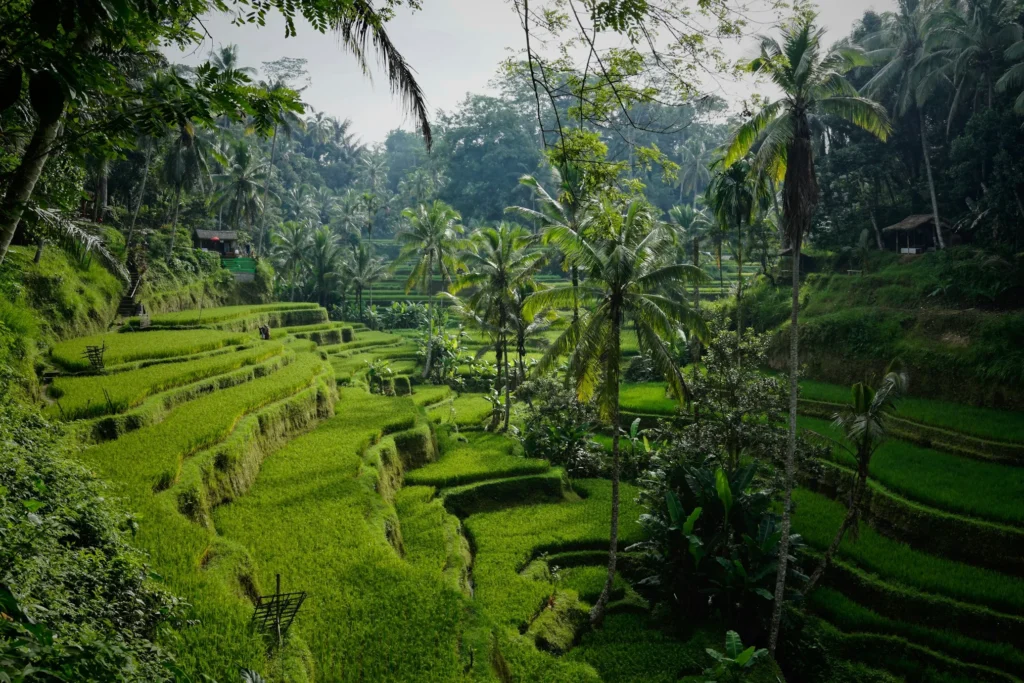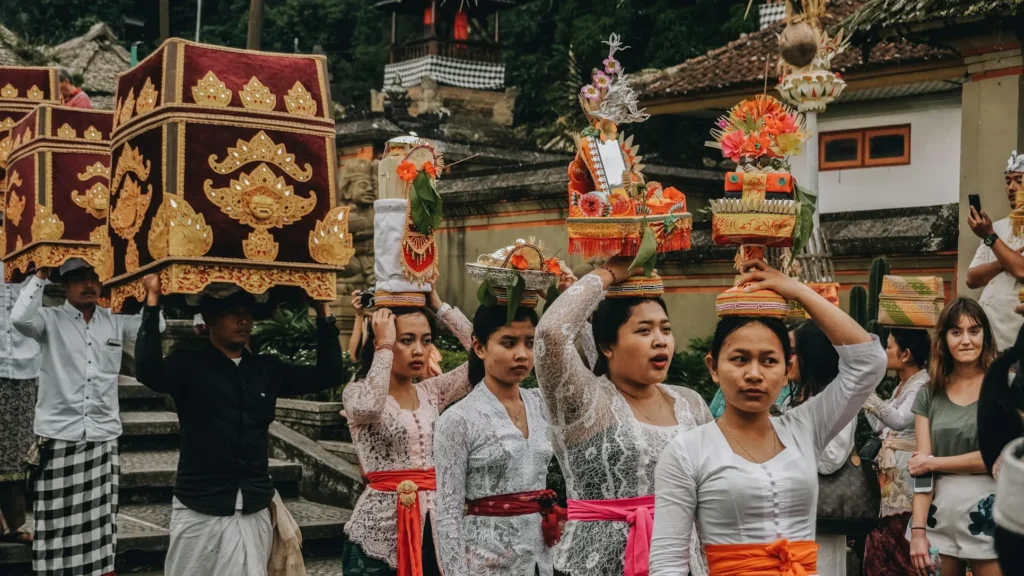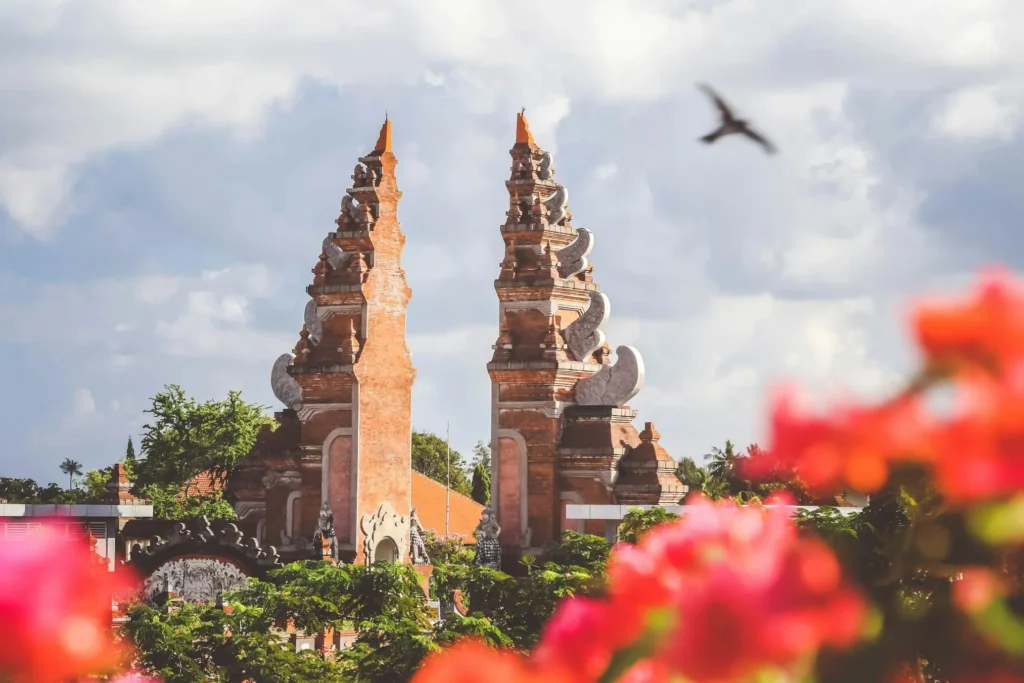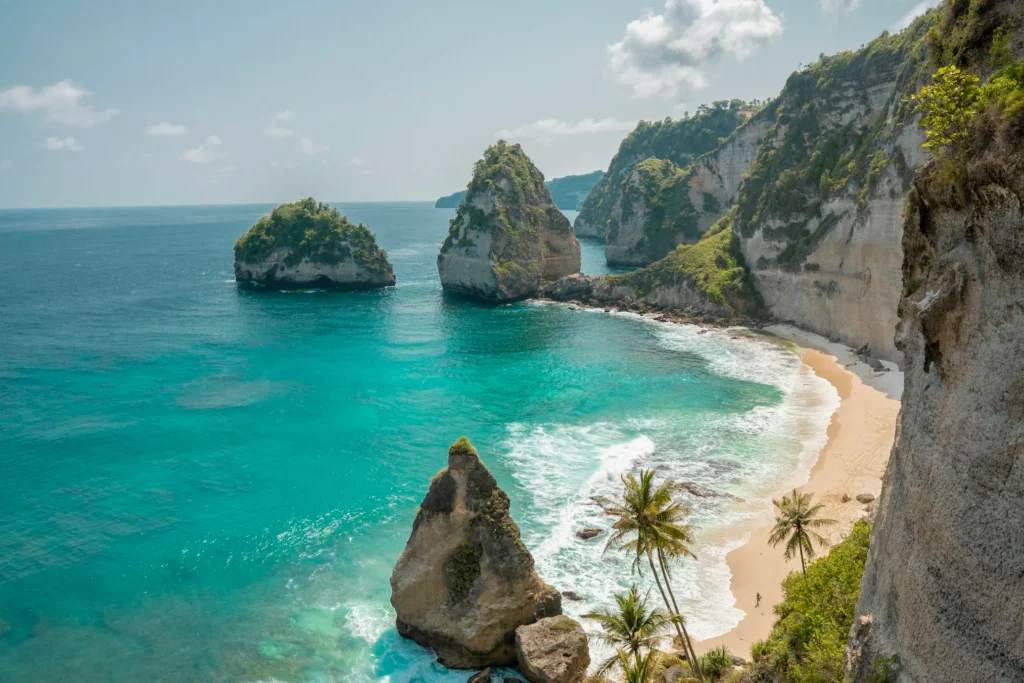Bali, Indonesia, is a tropical paradise that has long captivated travelers from across the globe. Renowned for its stunning beaches, lush green landscapes, and rich cultural heritage, Bali remains a premier destination in global tourism.
Whether you’re drawn to the crystal-clear waters of Nusa Dua, the vibrant nightlife of Seminyak, or the serene natural beauty of Ubud, Bali offers an unparalleled travel experience. From the majestic Mount Batur and Mount Agung to the sacred Monkey Forest Sanctuary and the captivating Kecak Fire Dance, the island is brimming with unforgettable attractions and activities.
As you plan your visit, explore exciting options like day trips to Nusa Penida, thrilling ATV quad bike adventures, or tranquil walks along the Campuhan Ridge. With its warm hospitality, delicious Balinese cuisine, and accommodations ranging from budget-friendly stays to luxurious star-rated hotels, Bali is a destination that truly caters to every type of traveler.
The Appeal of Bali
Scenic Landscapes

Bali is renowned for its breathtaking scenic landscapes, making it a paradise for nature lovers and photographers. The island is home to stunning rice terraces, such as those in Tegalalang and Jatiluwih, which are not only picturesque but also provide insights into the traditional Balinese method of rice cultivation.
These verdant terraces unfold in tranquil splendor, offering idyllic paths for leisurely walks and countless photo opportunities. The rugged coastline of Bali is another highlight, with cliffside temples like Uluwatu and Tanah Lot offering panoramic views of the Indian Ocean. Perched on cliffs, these temples create dramatic backdrops, especially during sunset, making them some of the most iconic and photographed spots on the island.
For a more secluded experience, the beaches of Nusa Lembongan and Nusa Penida are must-visits. These islands are famous for their white sand beaches, crystal-clear waters, and vibrant marine life, making them ideal for snorkeling and diving.
The unique rock formations and limestone labyrinths further enhance the exotic charm of these destinations.
Cultural Richness

Bali’s cultural richness is a significant part of its appeal. The island boasts numerous temples and cultural sites that reflect the deep-rooted Hindu traditions of the Balinese people.
Uluwatu Temple, for example, is not only a stunning architectural marvel but also a hub for cultural performances, including the traditional Kecak Fire Dance, performed daily at sunset. The Sacred Monkey Forest Sanctuary in Ubud is another cultural and natural highlight, where ancient temples and intricate sculptures coexist with free-roaming monkeys. This sanctuary offers a unique blend of nature and culture, allowing visitors to appreciate the spiritual significance of the forest while interacting with its fascinating wildlife.
Bali’s vibrant cultural scene is further evident in its various festivals and ceremonies, which are an integral part of Balinese life. These events showcase the island’s rich heritage through music, dance, and art, providing visitors with a unique opportunity to immerse themselves in local traditions.
Recreational Activities
Bali offers a wide range of recreational activities that cater to all types of travelers. For adventure seekers, the island provides opportunities for extreme sports such as surfing, diving, and ATV quad bike adventures. Uluwatu Beach, also known as Blue Point Beach, is particularly popular among surfers due to its challenging yet rewarding waves.
For families and those seeking a more relaxed experience, Waterbom Bali is a tropical water park featuring diverse slides, a lazy river, and swim-up bars, making it an ideal destination for family fun across all age groups. Additionally, Bali’s natural beauty makes it perfect for outdoor activities like hiking and trekking.
The sunrise trek to Mount Batur is a popular activity that offers breathtaking views of the surrounding landscape, allowing visitors to experience the island’s natural splendor.
Challenges in Bali Tourism
Environmental Concerns
Bali is facing significant environmental challenges that threaten its natural beauty and sustainability. One of the most pressing issues is the overwhelming accumulation of plastic waste and other pollutants.
The island’s waste management systems are struggling to keep up with the influx of tourists, resulting in once-pristine beaches like Kuta and Seminyak being affected by trash and plastic debris. This environmental crisis is not only aesthetically damaging but also poses a serious threat to Bali’s ecosystems, including its coral reefs and marine life.
Overfishing, pollution, and the destruction of habitats due to uncontrolled development are further exacerbating the degradation of Bali’s natural environment.
Overtourism

Overtourism is another major challenge facing Bali. The rapid and unchecked development spurred by the tourism industry is encroaching on Bali’s natural habitats and eroding its environmental and cultural heritage.
This has led to concerns about the strain on local resources such as water, energy, and waste management systems, which are often unable to cope with the surge in visitor numbers. While some argue that the term “overtourism” does not fully capture the situation, there is a consensus that the uneven distribution of tourists across the island is a significant issue. Efforts are underway to address this through the development of new infrastructure and access points, but the problem remains a critical one.
Preservation of Culture
The preservation of Balinese culture is also a challenge in the face of increasing tourism. The influx of foreign tourists and the subsequent Western influence have raised concerns about the erosion of traditional Balinese practices and cultural identity. There is a growing need to balance tourism with cultural preservation, ensuring that the island’s rich heritage is protected and respected.
Local communities and the Bali provincial government are working on initiatives to promote sustainable tourism practices that support cultural preservation, such as promoting local arts, traditional festivals, and community-based tourism projects. These efforts aim to maintain the cultural integrity of Bali while still benefiting from the economic advantages of tourism.
Traveler's Guide: Tips for Visiting Bali

Best Time to Visit Bali
When planning your trip to Bali, understanding the best time to visit is essential for making the most of your experience. The island has two distinct seasons: the dry season and the wet season.
The dry season, spanning from April to October, is generally considered the best time to visit. During this period, Bali enjoys clear skies, warm days, and excellent conditions for beach activities, diving, and snorkeling due to low rainfall and high visibility in the waters.
For those seeking to avoid the crowds, the shoulder season months of May, June, and September are ideal. These months offer great weather without the peak season crowds that typically flock to the island in July and August.
Respect Local Customs
Bali is a culturally rich and spiritually significant place, and respecting local customs is essential for a harmonious and enriching experience. When visiting temples or attending cultural events, it is important to dress modestly and follow local etiquette.
For example, wearing a sarong and sash (or scarf) is often required when entering temples, and removing your shoes is a common practice in many sacred sites. Additionally, being mindful of the island’s many ceremonies and festivals can enhance your experience.
Participating respectfully in these events or simply observing them can provide a deeper understanding of Balinese culture and traditions.
Sustainable Travel Choices
As Bali faces increasing environmental and cultural challenges, making sustainable travel choices is more important than ever. One of the key ways to do this is by choosing eco-friendly accommodations and tour operators that support local communities and environmental conservation. Opting for local transportation, such as hiring a local driver or using public transport, can also reduce your carbon footprint and support the local economy.
Furthermore, being mindful of your impact on the environment is important. Avoiding single-use plastics, respecting marine life, and not littering are simple yet effective ways to contribute to the preservation of Bali’s natural beauty.
Supporting local businesses and artisans by purchasing local products can also help in preserving the island’s cultural heritage.
Conclusion
In conclusion, Bali, Indonesia, is a destination that offers a unique blend of natural beauty, rich cultural heritage, and diverse recreational activities. When planning your visit, remember to choose the best time to visit, ideally during the dry season from April to October, to make the most of your experience.
Respect local customs by dressing modestly and participating respectfully in cultural events. Opt for sustainable travel choices to support the local economy and preserve the environment.
Bali’s famous temples, stunning waterfalls, and beautiful beaches are must-visit attractions. However, be mindful of overtourism and environmental concerns.
By being a responsible traveler, you can contribute to the preservation of this tropical paradise. Whether you are drawn to the spiritual significance of Uluwatu Temple, the natural beauty of the rice terraces, or the vibrant nightlife of Seminyak, Bali has something for everyone.
So pack your bags, plan responsibly, and get ready to experience the magic of Bali.
